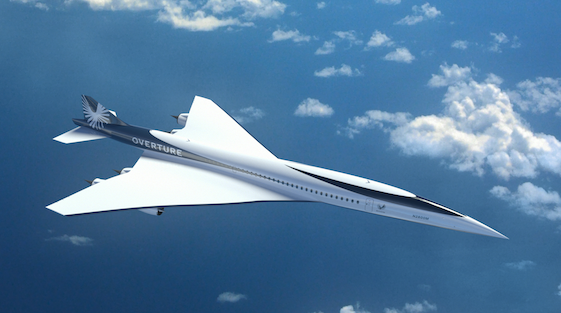Boom Supersonic, which has the goal of building the fastest airline passenger jet in the history of the world – and doing so at Piedmont Triad International Airport (PTIA) – announced this week that it has signed a new agreement with Dimensional Energy that will help Boom reach its goal of offering incredibly fast passenger service with a low carbon footprint.
Dimensional Energy makes carbon neutral fuels and products. The company does so by recycling carbon dioxide. Under the new agreement, Boom will purchase up to 5 million gallons of the planet-friendly fuel ever year while the flagship Overture aircraft is being flight tested.
Overture is the supersonic airliner being developed by Boom that will fly at speeds twice as fast as today’s commercial jets, making a trip from, say, Atlanta to Seoul, seven hours rather than 14.
Boom President and Chief Business Officer Kathy Savitt said of the new deal: “At Boom, we believe sustainable aviation fuel will be essential to the transformation of air travel. Our new collaboration with Dimensional Energy represents another important step to making sustainable supersonic flight a reality for millions of passengers in the coming years.”
“SAF” fuels are biofuels that have similar properties to ordinary jet fuel, but that get the job done with a smaller carbon footprint. Dimensional Energy promotional materials state that, “By combining a proprietary carbon utilization technology and the Fischer-Tropsch process—a century-old proven method—Dimensional Energy expects to rapidly bring power to liquid SAF to market. At its technology center in Tucson, Arizona, Dimensional Energy has already proven that its unique method can effectively produce the net zero carbon SAF from recycled carbon dioxide.”
Other airlines are also going green with the fuel. United Airlines, which just announced a new non-stop route from PTIA to Denver, has its own agreement to buy at least 300 million gallons of SAF from Dimensional Energy over the next two decades.
United Airlines leaders have stated that the airline is committed to decarbonizing its operations by 2050, without relying on buying traditional carbon offsets.

